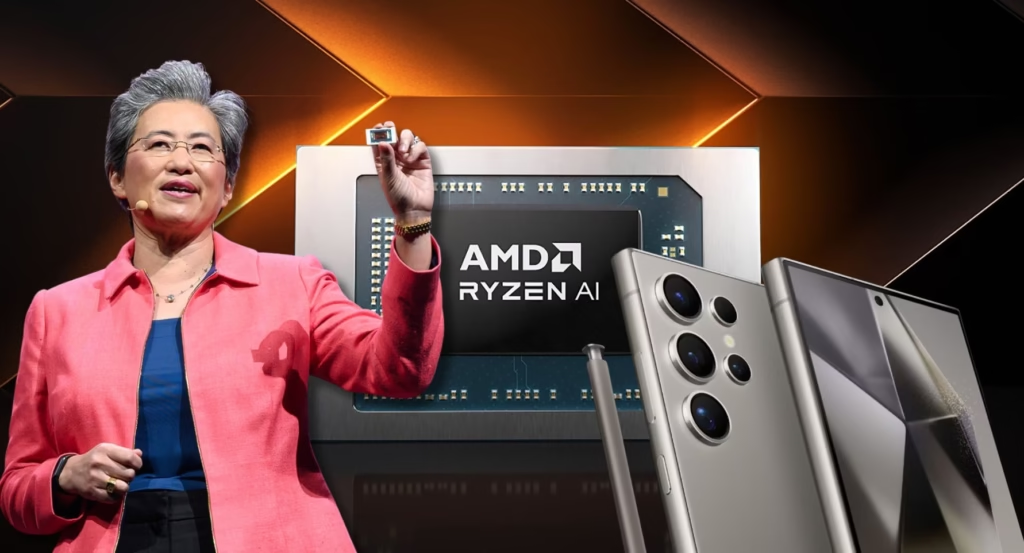In a bold and unexpected move, Advanced Micro Devices (AMD) has set its sights on the smartphone market. Known for its dominance in PC and server processors, AMD’s decision to enter this competitive space signals a new chapter in the tech giant’s journey. With AI-ready Ryzen processors, AMD is betting on artificial intelligence to carve out a niche in an industry dominated by heavyweights like Qualcomm, MediaTek, and Apple.
AI in Your Pocket: Ryzen’s Smartphone Revolution
AMD’s Ryzen processors are synonymous with high performance and cutting-edge technology. Now, the company aims to bring this expertise to the smartphone world by leveraging AI. These new processors promise to deliver unprecedented computational power, tailored specifically for AI-driven tasks like real-time language translation, enhanced camera capabilities, and predictive text generation.
Why now? With AI integration becoming a must-have in smartphones, AMD sees a unique opportunity to redefine the boundaries of mobile processing power. Unlike traditional chips, these AI-ready Ryzen processors will focus on both performance and efficiency, targeting a new wave of devices designed to handle increasingly sophisticated workloads.
Standing Out in a Crowded Market
AMD’s foray into smartphones comes at a time when competitors are deeply entrenched. Qualcomm dominates with its Snapdragon lineup, and MediaTek has carved out a significant share with cost-effective solutions. So, how does AMD plan to stand out?
By focusing on AI optimization, AMD aims to offer a compelling alternative. Ryzen processors, with their advanced neural processing capabilities, could enable smarter and faster mobile experiences, setting new benchmarks for AI performance in smartphones.
Additionally, AMD’s deep-rooted expertise in gaming and high-performance computing could allow it to target niche markets, such as gaming smartphones or premium flagship devices.
Challenges on the Horizon
While AMD’s ambition is noteworthy, the road ahead is not without challenges. Breaking into the smartphone market means competing with entrenched players and navigating complex supply chain dynamics. Moreover, AMD will need to ensure its chips deliver performance while keeping battery consumption in check—a critical factor for mobile devices.
Another wildcard is the shifting geopolitical landscape, with potential tariff hikes and supply chain reshuffling looming as Donald Trump’s presidency approaches. AMD’s strategy may need to adapt to new regulations and market conditions.
What’s Next for AMD?
AMD’s leap into the smartphone market is as ambitious as it is intriguing. By focusing on AI-ready Ryzen processors, the company hopes to redefine smartphone performance and make a dent in a fiercely competitive space.
Whether AMD can pull off this bold move remains to be seen, but one thing is certain—the tech world will be watching closely. Are we witnessing the dawn of a new player in the smartphone chip market? Time will tell.




2 Responses
Just downloaded the jjwinapk app. So far, so good – pretty easy to navigate. Gonna give it a proper run tonight. Hoping for some wins! Get the app, guys jjwinapk!
Decided to try my luck on 365luckybet. Seem interesting, lots to bet on. Good selection! Give it a punt and see how you get on 365luckybet.